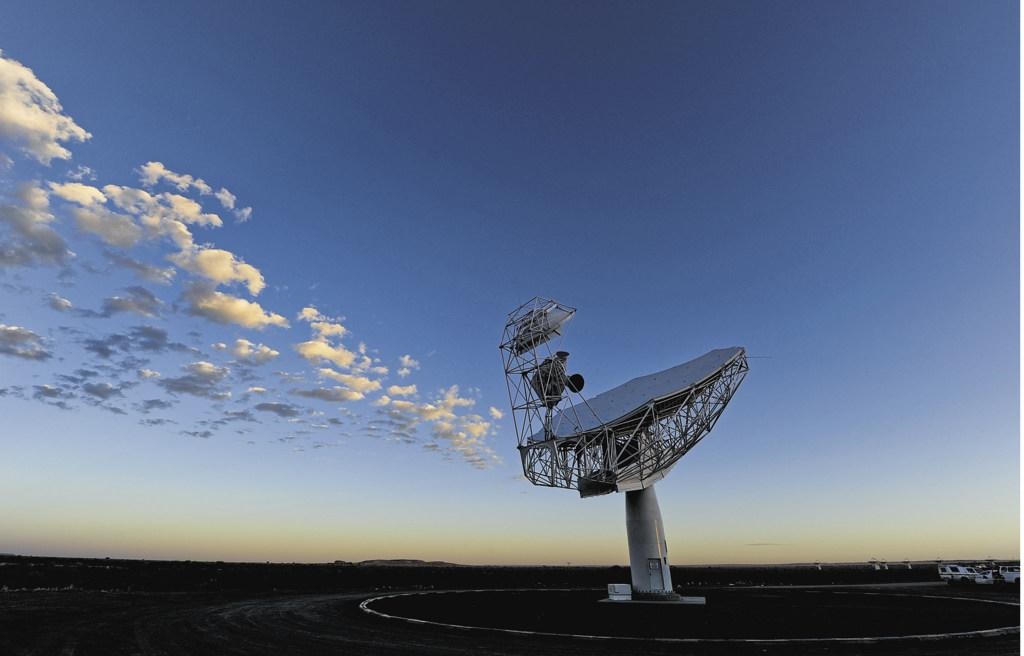
As we look to the numerous challenges the world faces today, including climate change, food insecurity and the Covid-19 pandemic, we should embrace the power of scientific collaboration, writes Australia's High Commissioner to South Africa, Gita Kamath.
As Australia's High Commissioner to South Africa, I am delighted with the growing links between our countries – particularly when it comes to science and technology. While we might be competitors on the sporting field, our shared environmental challenges and climate realities suggest our countries have a lot to gain by working together.
With the 2021 United Nations Climate Change Conference (COP26) in Glasgow fast approaching, now is the time to reflect on the contribution our cooperation is making to a better world on both sides of the Indian Ocean. Australia is investing in technologies that will support sustainable development and help us reach net-zero greenhouse gas emissions. A technology-led approach to emissions reduction will boost the roll-out of low emissions technologies, creating jobs, supporting businesses and industries to innovate, and driving economic growth.
Projects like the Square Kilometre Array (SKA) and Digital Earth Africa (DE Africa) are at the cutting edge of the science cooperation between Australia and South Africa's government, research and academic communities. These projects are catalysts for innovation and will generate data and products with broad applications, creating commercial opportunities for industry in both our countries.
A win for global cooperation
The SKA is the flagship project of our scientific cooperation. It is a venture of epic proportions, conceived more than 20 years ago and supported by an international consortium of 16 countries. It consists of two parts, one radio telescope located in South Africa and another in Australia, that together will make up the world's largest scientific facility.
South Africa already hosts 64 dish antennas that make up the MeerKAT telescope, a precursor to the SKA. A further 133 dishes will be constructed to complete the SKA-Mid component of the project, at the special site near Carnarvon in the Northern Cape that I was privileged to visit earlier this year. There are plans to expand this network into eight other African countries.
On the Australian side, SKA-Low is being developed in central Western Australia on part of the ancestral lands of the Wajarri Yamaji people. It will consist of over 131 000 dipole antennas (each resembling a Christmas tree) being placed in 512 stations across the outback.
ALSO READ | David Monyae: SA embraces digital sovereignty but does govt have means to implement its policies?
At a time when countries often seem inward-looking, the SKA is a win for global cooperation; having already captured the attention of more than 1 000 scientists and 500 engineers from around the world. When construction is complete towards the end of the decade, the Australian and South African-hosted infrastructure will provide imaging to SKA member countries across the world. That imagery will be at a scale and in detail unparalleled by any current technology – providing answers to fundamental questions about the universe. Big science indeed!
The precursor facilities are, in the meantime, yielding impressive results. MeerKAT has taken the most detailed radio image yet of the centre of our galaxy, while last year Australia's ASKAP telescope created a new atlas of the universe, mapping a record-breaking three million galaxies in 300 hours.
The environment
Similar to Australia, the African continent comprises a rich and diverse environment. But, in many parts of Africa, challenges such as access to water and food insecurity are very real. Our ability to respond to these challenges is informed by how well countries understand the human and climactic impact on their environment and natural resources. Africa's land surface and coastline has for decades been regularly imaged by satellites, but the petabytes of data accumulated are challenging to process and analyse. While freely available, they are not in an easy format to interrogate or apply.
Seeking to address barriers to use, the Australian Government, through Geoscience Australia, facilitated and co-funded the establishment of DE Africa. This is an operational platform which uses Australian-designed open source technology known as the Data Cube to translate satellite imagery and data into decision-ready information. Having already been successfully rolled out on a continental scale in Australia, it will allow policymakers, scientists, the private sector and civil society in Africa to address social, environmental and economic changes across the continent and respond effectively to the challenges of sustainable development. This promises to be a game-changer when it comes to our capacity to improve agricultural productivity and manage environmental challenges caused by climate change.
The recent announcement that DE Africa's Program Management Office (PMO) will be hosted by the South African National Space Agency (SANSA) marks a significant milestone in the development of this work. The platform will be African owned and respond to continental priorities. It will provide reliable and free access to Earth observation data.
ALSO READ | OPINION: Women are the key to growing South Africa's security industry
Moreover, the opening of Amazon Web Services' (AWS) Cape Town facility in 2020 means that countries across Africa now have real-time access to locally stored analysis-ready satellite data, freely available through the DE Africa platform. The launch of the program across the African continent marks an important milestone for the DE Africa project's intent to achieve operationally, technically and financially sustainable services delivered by Africans, for the benefit of Africans.
Power of scientific collaboration
At a practical level, DE Africa imagery of the devastating 2021 Table Mountain fires in Cape Town will allow scientists to analyse burn patterns and bolster future disaster risk measures. Further north, DE Africa is currently being used to monitor the dynamic and complex freshwater landscape of the Okavango Delta, with a particular view to measuring seasonal change in water levels. This data will provide a valuable input into the ongoing management practices of the Delta, supporting the sustainable management of this precious ecosystem.
As we look to the numerous challenges the world faces today, including climate change, food insecurity and the Covid-19 pandemic, we should embrace the power of scientific collaboration. When we bring together experts from across the world with their different experiences, skills and knowledge, we can fast track achievements and present truly global solutions. I am proud that two ground-breaking examples of this are being led by Australia and South Africa working together.
- Gita Kamath is Australia's High Commissioner to South Africa.
To receive Opinions Weekly, sign up for the newsletter here.
*Want to respond to the columnist? Send your letter or article to opinions@news24.com with your name and town or province. You are welcome to also send a profile picture. We encourage a diversity of voices and views in our readers' submissions and reserve the right not to publish any and all submissions received.
Disclaimer: News24 encourages freedom of speech and the expression of diverse views. The views of columnists published on News24 are therefore their own and do not necessarily represent the views of News24.




 Publications
Publications
 Partners
Partners
























